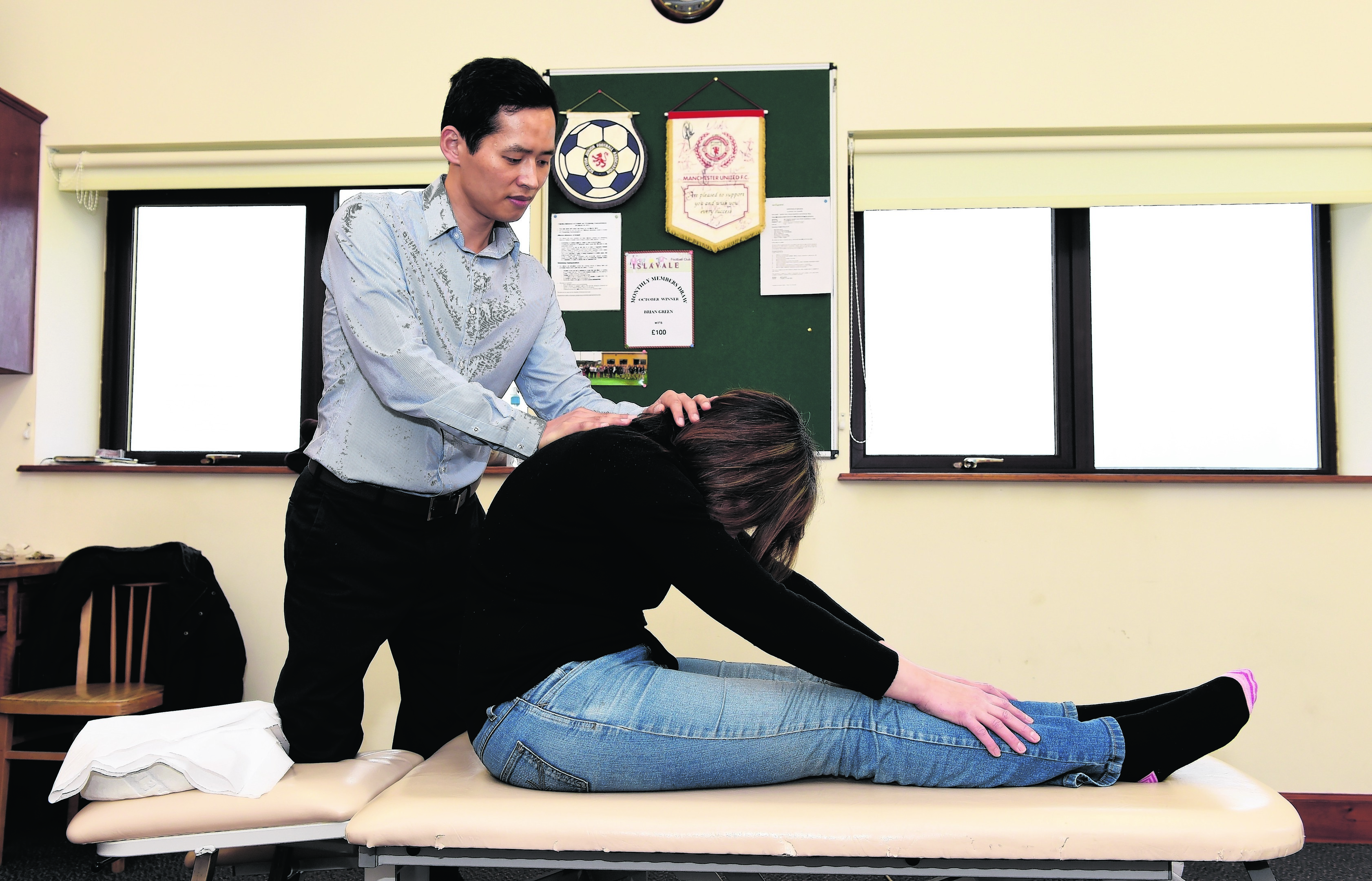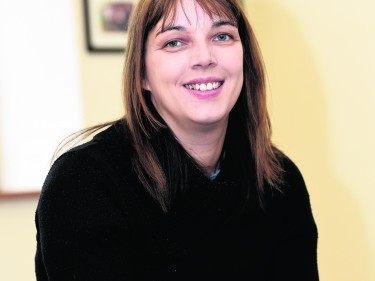Keith resident Susan Shand volunteers with the Moray branch of the MS Society. Here, she tells readers about a man pioneering a new device to improve walking for multiple sclerosis sufferers
In May I engaged the services of Chongsu Lee from Point One Clinic, in Edinburgh. Chongsu is a physiotherapist who has pioneered a very special technique of spinal manipulation.
An Edinburgh-based start-up company Pacla Medical is developing an automated physiotherapy device, which is based on a proven and successful application of manual technique, which makes significant difference to many MS patients’ lives.
Because the manual technique requires trained therapists and is time consuming, the access is very limited. As a result, the automated physio device has been invented to replicate the novel spine movement to treat MS so that patients can use it themselves at home. While a patient is lying on the back, the device will move the spine, from neck to low back, to remove spine joints stiffness, which improves patients’ mobility and MS symptoms.
Chongsu held a clinic in Keith for a week in July and eight of us had a daily treatment for that period.
The initial outcome of this concentrated course of treatment was sufficiently encouraging that we have agreed to a further course on a once-weekly basis over 14 weeks and, once again, Chongsu, or one of his practitioners, will visit Keith.
Sandra, from Forres, who lives with secondary progressive MS, told me: “Before treatment my walking with the walker wasn’t great due to stiffness which caused them to be very straight and no bending in them.
“Since treatment my legs now have a bend in them at the knees which makes walking much easier and, with this, my pelvis is more moveable when I walk. I was not steady transferring, going to the toilet, getting up from the bed etc. Now I can transfer more easily, sorting clothes when going to the toilet is much easier as I can stand for longer and getting up from the bed is much easier.
“This is all due to the improvement in my balance which had also improved my feelings of safety. This also makes my husband happier that I feel safer. Getting my lower half clothed in the mornings pre-treatment was a struggle but now my legs are far more bendy and stretching is easier. Pre-treatment, there was a lot of stiffness in my neck and back which has improved greatly. My bladder function has improved since treatment.
“Overall I feel that although these improvements may be small to the man on the street, to me they are massive and, with further treatment, I would hope to see further improvements,” said Sandra.
Treatment outcomes have varied from person to person and ranged from positive mobility benefits to a less tangible physiological sense of hope and wellbeing. I anticipate that more participants will see more improvements after the longer course of treatment.
Deirdre, from Elgin, lives with secondary progressive MS. She said to me: “Ultimately, I had gained confidence. Physically, I found it easier to stand and balance and I use every opportunity that I can to stand (aided or unaided).
“I was able to turn in bed on my side and draw my legs up (prior to the treatment my husband had to aid me with this process). I am able to bend my legs more easily and place them in my wheelchair footplates.”
Chongsu, an award-winning engineer who previously worked at Hyundai Motor Company in South Korea, came to the UK in 2006 to become a qualified physiotherapist based in Edinburgh.
Chongsu has been awarded a government grant towards producing a prototype of the device. Funding is crucial to bring the plan to reality sooner rather than later, and support from others, and collaborative work with an MS-related charity are much needed.
He said: “Firstly, our plan is to build a fully functioning prototype of the device. Support from expert engineers is vital to realise this sophisticated medical device. The prototype is estimated to cost about £200,000, including designing and testing.
“Edinburgh Napier University’s PhD research team has agreed to use the device to measure the effects of changes to spine joints stiffness on mobility in MS.
“Scottish Enterprise has given the start-up company a grant of £100,000 which will be used to develop a partially functioning prototype, and the company is seeking an additional £100,000 to develop a full prototype.”
The proposed device development is supported by NHS Scotland’s Health Innovation Partnership programme, with ongoing discussion on how it would be used in the future within NHS Scotland, providing both clinical trials support and economic benefits are met.
Contact Point One Clinic, 21 Hill Street, Edinburgh. Phone 0131 473 2333 or www.pointoneclinic.com

